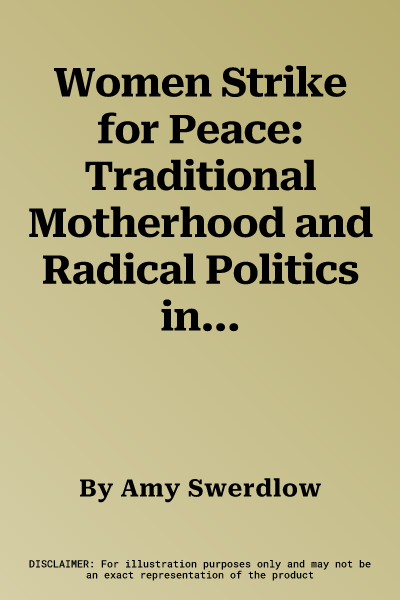Women Strike for Peace is the only historical account of this
ground-breaking women's movement. Amy Swerdlow, a founding member of
WSP, restores to the historical record a significant chapter on American
politics and women's studies. Weaving together narrative and analysis,
she traces WSP's triumphs, problems, and legacy for the women's movement
and American society.
Women Strike for Peace began on November 1, 1961, when thousands of
white, middle-class women walked out of their kitchens and off their
jobs in a one-day protest against Soviet and American nuclear policies.
The protest led to a national organization of women who fought against
nuclear arms and U.S. intervention in Vietnam. While maintaining
traditional maternal and feminine roles, members of WSP effectively
challenged national policies--defeating a proposal for a NATO nuclear
fleet, withstanding an investigation by the House Committee on
Un-American Activities, and sending one of its leaders to Congress as a
peace candidate.
As a study of a dissident group grounded in prescribed female culture,
and the struggle of its members to avoid being trapped within that
culture, this book adds a crucial new dimension to women's studies. In
addition, this account of WSP's success as a grass roots,
nonhierarchical movement will be of great interest to historians,
political scientists, and anyone interested in peace studies or conflict
resolution.
Swerdlow has re-created a unique piece of American political history, a
chapter of the international peace movement, and an origin of the modern
feminist movement. No historian, activist, or self-respecting woman
should be without Women Strike for Peace. It shows not only how one
group of women created change, but also how they inevitably changed
themselves.--Gloria Steinem

